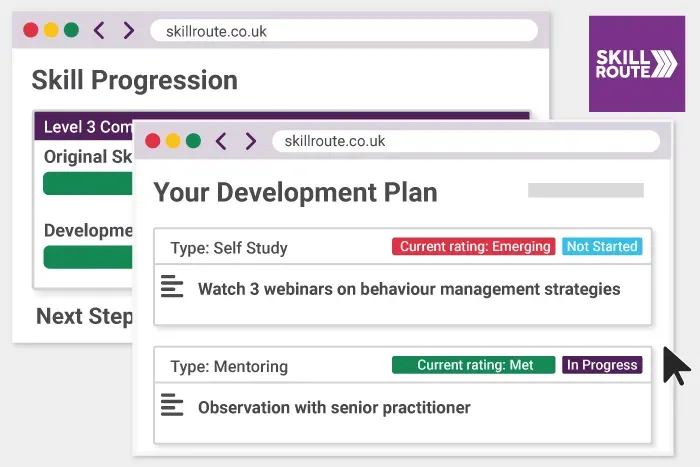6 Steps to Deal with an Angry Parent

Dealing with an angry parent in a nursery can be a challenging and stressful situation. As a childcare professional, it's important to handle these situations with care and professionalism in order to maintain a positive relationship with the parent and ensure the well-being of the child.
Here are six steps to take when dealing with an angry parent in your nursery:
1. Stay calm and listen to the parent's concerns without interrupting or getting defensive.
The parent may be upset and express their concerns in a strong or emotional way. In this situation, it would be important for you to stay calm and not interrupt the parent. Instead, you should listen to what they have to say and try to understand their perspective. This might mean asking questions to clarify their concerns, or simply nodding and making eye contact to show that you are listening. It is also important not to become defensive, even if you feel that the parent's concerns are unfounded or unfair. Instead, you should try to respond in a way that is respectful and constructive, and that addresses the parent's concerns without getting defensive.
2. Apologise for any mistakes or misunderstandings that may have occurred.
Apologising for mistakes or misunderstandings is important because it shows that you are willing to take responsibility for your actions and recognize when you have made a mistake. This can help to defuse potential conflicts and improve relationships with others.
3. Offer to work with the parent to find a solution to their concerns.
Offering to work with the parent to find a solution to their concerns is an important way to show that you value their input and are willing to collaborate with them. This can help to build trust and improve your relationship with the parent, and can also show the parent that you are committed to the success of their child.
4. Follow up with the parent regularly to ensure that the issue is being addressed and resolved.
Following up with the parent regularly is important because it shows that you are committed to addressing and resolving the issue that they have raised. This can ensure that any steps that are being taken to address the issue are effective and are making progress, and can also give the parent an opportunity to provide feedback.
5. If necessary, involve a supervisor or manager to help mediate the situation and address the parent's concerns.
If necessary, involving a supervisor or manager can help to mediate the situation and address the parent's concerns. This can provide an objective perspective and can ensure that the situation is handled in a fair and appropriate way. A supervisor or manager may also have the authority to make decisions or take actions that are necessary to resolve the situation.
6. Create a plan to prevent similar issues from occurring in the future, such as implementing clear communication policies or providing more training for staff members.
Creating a plan to prevent similar issues from occurring in the future is an important way to address the root causes of the problem and ensure that it does not happen again. This might involve implementing clear communication policies, such as establishing a regular schedule for check-ins with parents or providing clear instructions for staff members on how to handle specific situations. It could also involve providing more training for staff members, such as training on how to effectively communicate with parents or how to handle difficult situations. By taking these steps, you can help to prevent future misunderstandings or conflicts, and can improve the overall experience for parents and staff members alike.
By following these steps, you can effectively address the concerns of an angry parent and maintain a positive relationship with them. This will ultimately benefit the child and ensure a safe and nurturing environment in your nursery.
Other Articles

Can My Level 2 Staff Be Left Alone with Children? (2025 Ratio Rules Explained)
May 21, 2025

Understanding Ofsted's New Experience-Based Route for Early Years Staff
February 5, 2025

Are Day Swaps a Good Idea for Your Nursery? A Guide for Owners and Managers
December 11, 2024

Ofsted’s Grading Changes: Impact on Nurseries
September 3, 2024

Nursery Staff Meeting Activities: Scenario Analysis and Role-Play
June 18, 2024

How to Write a Staff Meeting Agenda for Nursery Settings
June 18, 2024

How to Plan a Nursery Staff Meeting
June 18, 2024

Boosting Parent Partnership: 10 Strategies for Nursery Success
May 10, 2024

EYFS 2024: What's Changing? Find out and take the quiz!
November 25, 2023

White Noise for Sleeping Babies: Pros, Cons, and Tips
October 24, 2023
 © Copyright 2021 - 2025. All rights reserved.
© Copyright 2021 - 2025. All rights reserved.